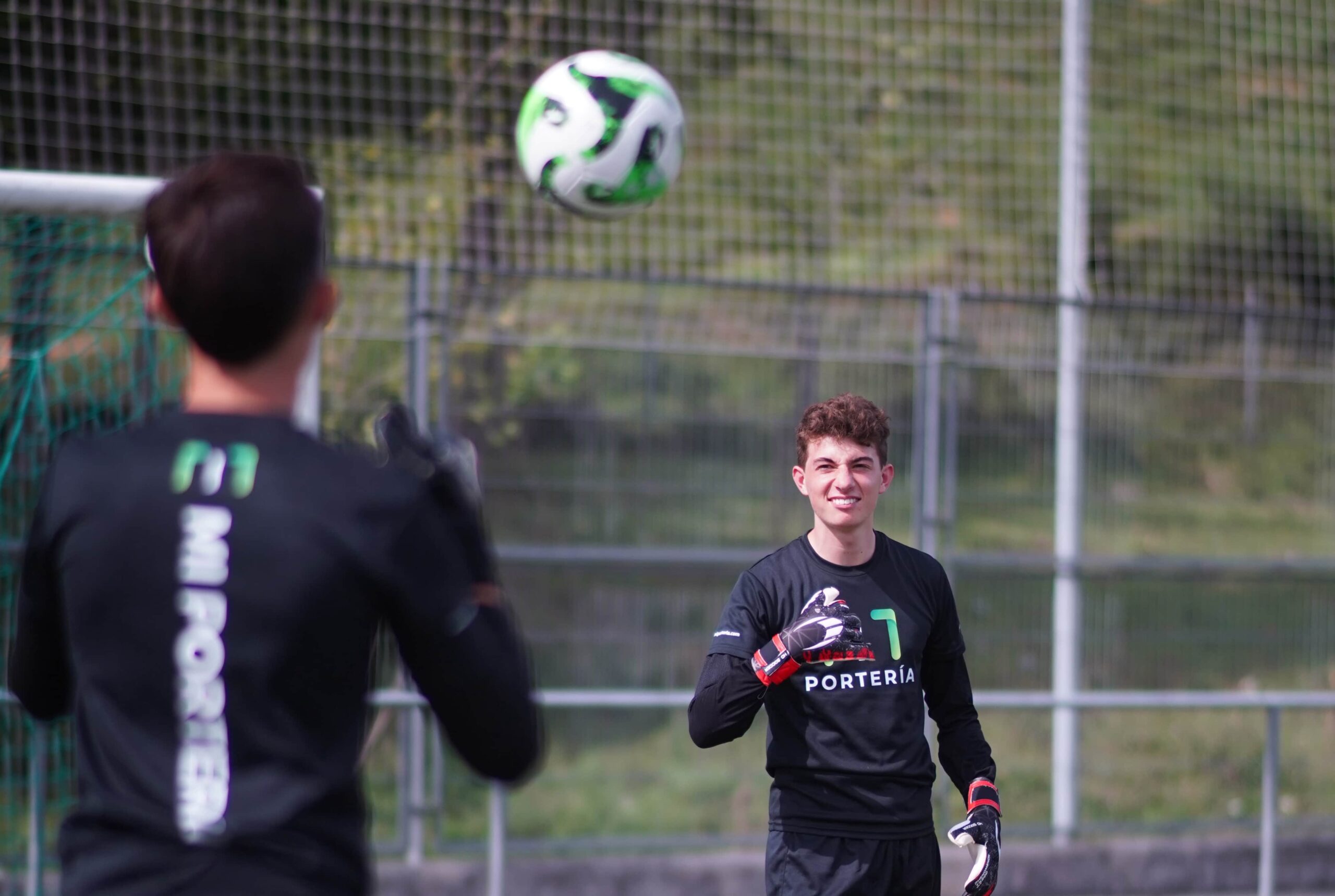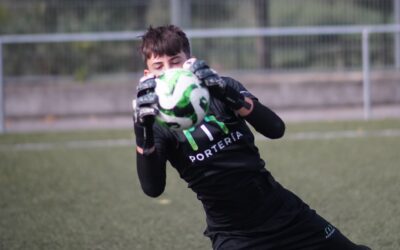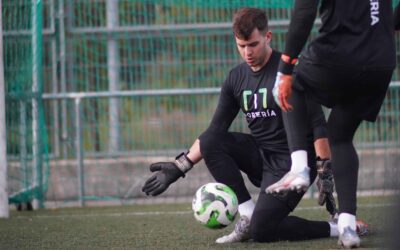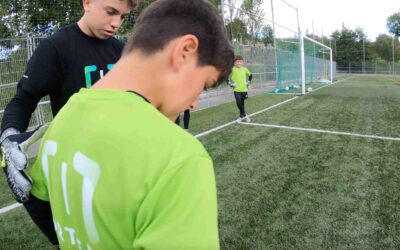[vc_row][vc_column][vc_column_text]
The pre-match warm-up is the tool used by any goalkeeper to achieve the best possible condition for the competitive moment. There are an infinite number of warm-ups, but they all have one thing in common: they must prepare the goalkeeper on a physical, psychological, technical and tactical level. Normally, the warm-up in football has a first more general part in which physical aspects are prioritised such as jogging, joint mobility, strength work with one’s own weight, etc. …. and a second more specific part in which more technical and tactical concepts are emphasised such as, for example, thinking about the team warm-up: passes in pairs, possessions in small spaces, finishing with a front kick or centre kick, etc. Of course, within all these tasks, the player/goalkeeper improves their levels of attention, concentration, perception, etc., improving or preparing the mind (psychological level).
Similarly, we can access recordings of complete pre-match warm-ups of professional goalkeepers and see how the pre-established order is similar. We find a first part that tries to focus on the physical aspect with joint mobility and stretching, normally free to the goalkeeper’s liking, and a second more technical/tactical part in which the goalkeeper performs different sequences of short and medium distance passes, blocks of all kinds, blocks in aerial play, goal kicks, etc.
This is where the doubt arises and at the same time a valid reflection for all our readers:
Does the pre-match warm-up we do really prepare the goalkeeper for all the demands he will encounter in competition?
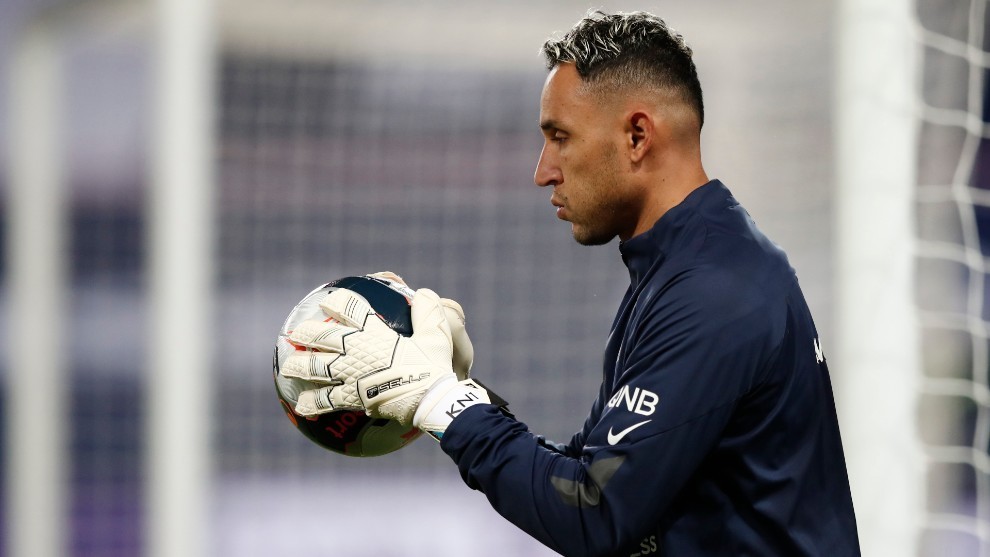
We don’t think so. If we analyse the existing content in depth, we can see that on a technical and tactical level, the warm-up designed by goalkeeping coaches is sometimes rather poor. Don’t you think so? Normally the warm-ups are only composed of ball recovery actions such as blocks, almost completely ignoring deflections, rejections or clearances with the fist. Similarly, on a tactical level, warm-ups are largely made up of shots from frontal situations and lateral crosses without varying the depth, completely ignoring 1vs1 situations, back passes, diagonal shots, or even defensive-defensive transition actions such as throws.
Furthermore, we could add to this last reflection that all these drills or exercises we are talking about are not completely adapted to the game. Football is a collective sport that requires constant decision making, including by the goalkeeper, and the purely analytical exercises we are talking about do not have this characteristic.
Repeated shots from the same position that cancel the perception of the variation of the ball’s trajectory and only have an impact on one way of shooting, exercises that do not give the option of second actions, characteristics of the game, ball recovery actions without an offensive continuation, restart actions that are only technical and in which the free man is not perceived, etc;
Are all of them drills that can be improved if we talk about being critical of ourselves?
Is this largely pre-established script of professional football really the right one?
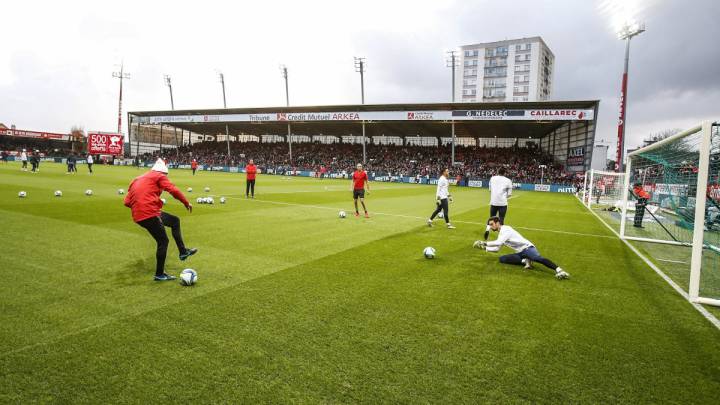
Another question for each of us to reflect on is whether what we see or try to copy from professional football is valid just because it has media backing. We still don’t think so! Sport, just because it is professional, does not mean that it is always right. Sometimes, the same context that surrounds them, the power or the opinion of the players leads coaches to design warm-ups according to the player’s own taste or custom, avoiding other tasks that would perhaps prepare him better for the competition.
In short, if football is a collective sport of collaboration-opposition whose main characteristic is the changing context of the game: why do we only generate an analytical and repetitive context for warming up? Perhaps we should rethink our warm-up and focus on what the analysis of the game reveals to be the most important: we should design exercises that focus much more on the goalkeeper’s cognitive capacity to enable him to anticipate and react in competition to those same changing requirements we are talking about…
In future articles we will propose drills that go in this direction or changes to those we have already designed, and thus provide them with greater richness.
[/vc_column_text][/vc_column][/vc_row]
